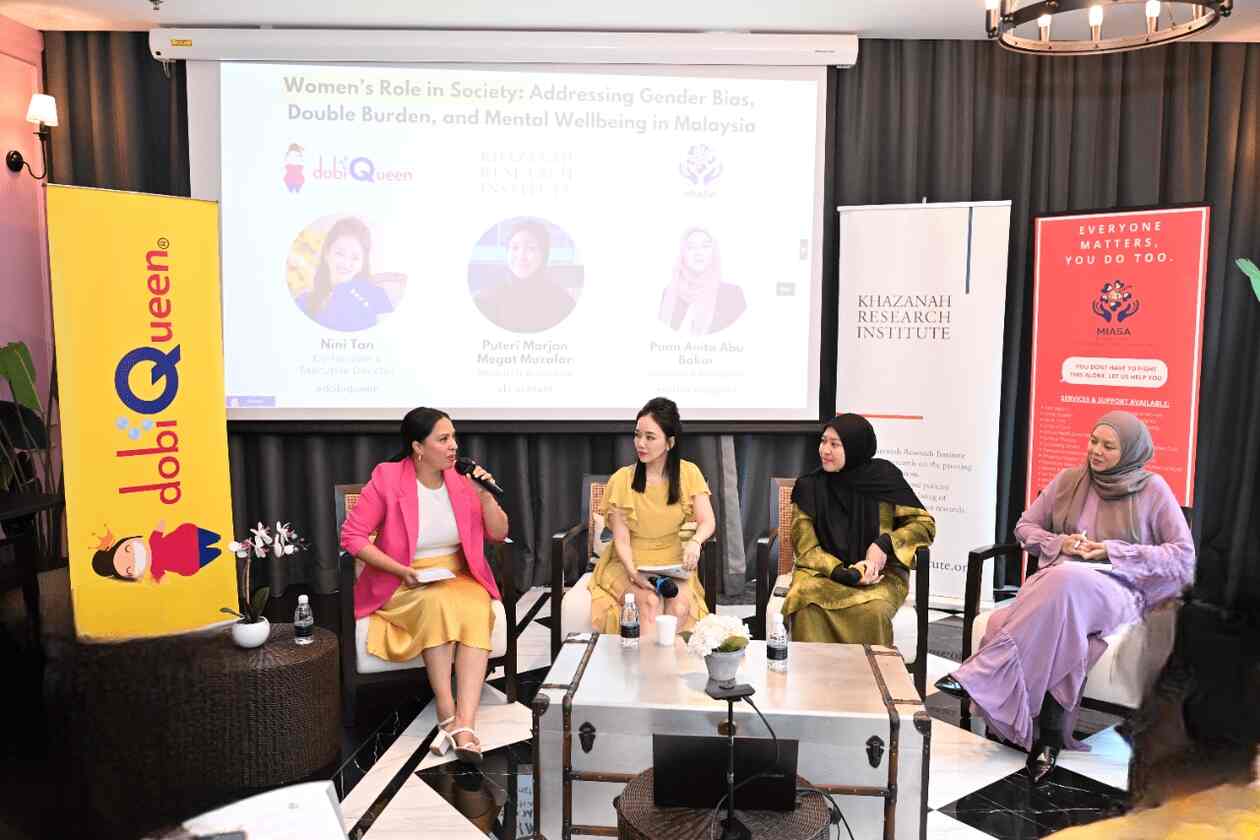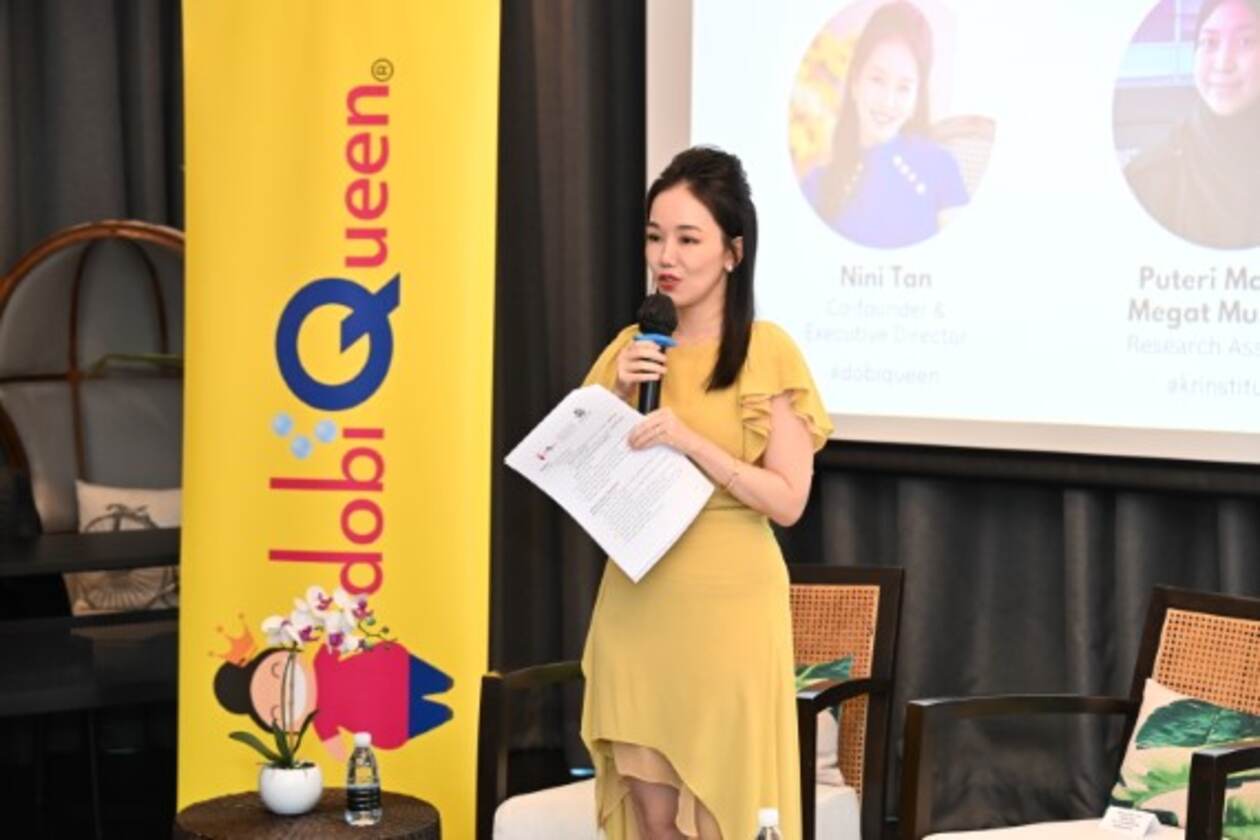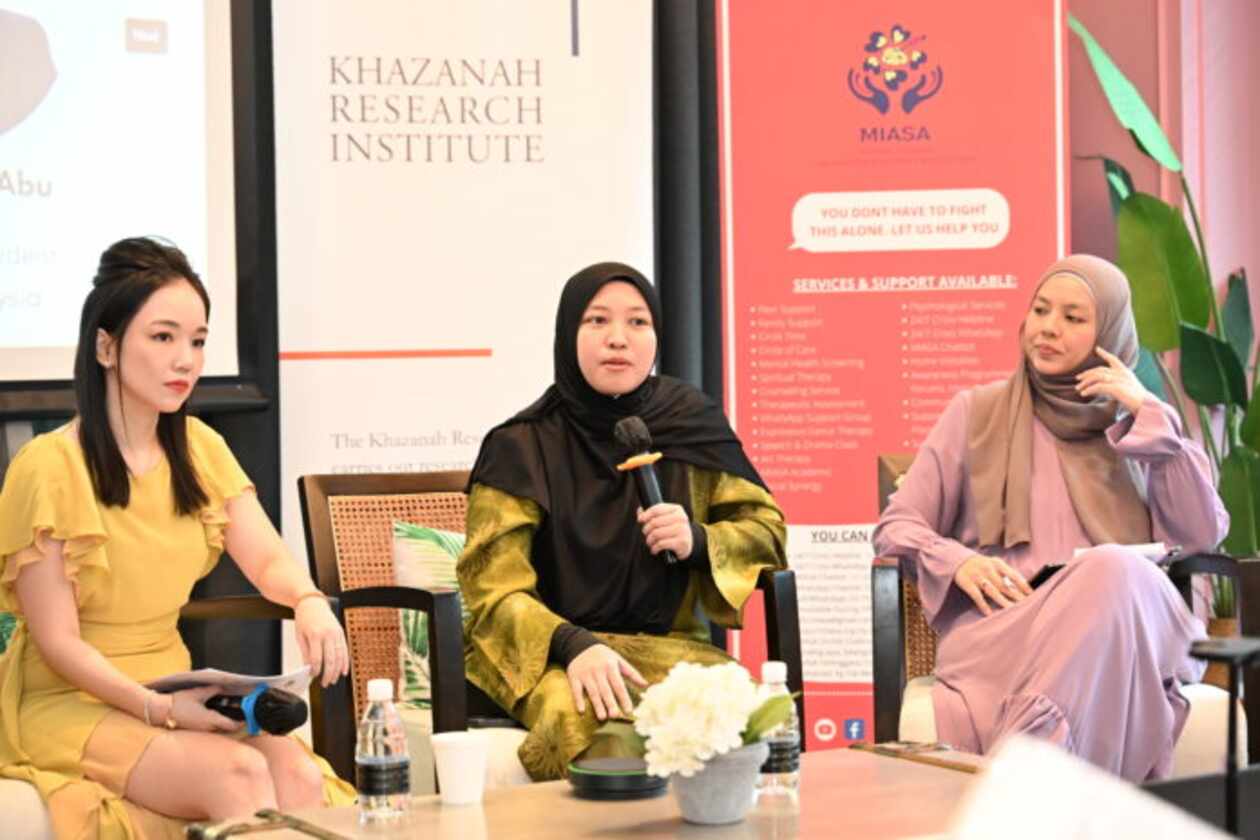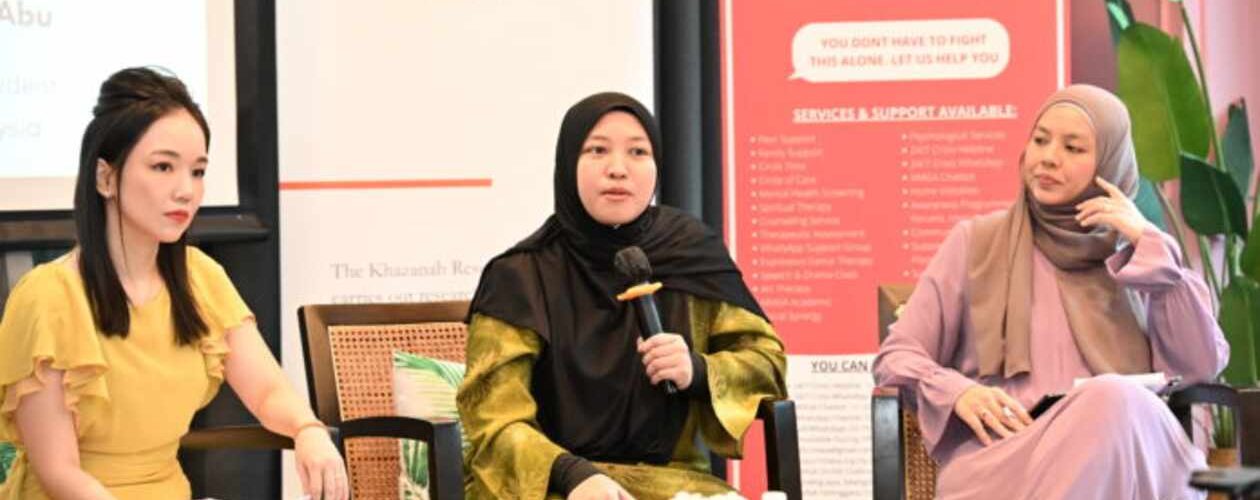In a thought-provoking panel hosted by self-service launderette dobiQueen, key issues surrounding women’s roles in society were explored. The session, titled “Women’s Role in Society: Addressing Gender Bias, Double Burden & Mental Wellbeing in Malaysia,” brought together experts from various fields to discuss the challenges women face in Malaysia today. Panelists shared insights into gender inequality, the double burden of managing work and home responsibilities, and the growing mental health concerns among women.
Gender Inequality in the Workforce

Khazanah Research Institute (KRI) provided a detailed analysis of women’s participation in the workforce. While women’s educational attainment is on par with men—comprising 52% of those with tertiary education—they remain underrepresented in the workforce, making up only 37.7% of the total labour force. Moreover, despite representing half of the professional workforce (50.1%), women hold only 25.4% of managerial positions, reflecting the persistent gender gap in leadership roles.
“Traditional gender roles continue to limit women’s career aspirations and opportunities,” said Puteri Marjan Megat Muzafar, Research Associate of KRI. “Men are often seen as the primary breadwinners, while women are expected to shoulder caregiving responsibilities, leading to gender inequality in economic participation.”
A staggering 62.1% of women outside the labour force cite household responsibilities as the reason for not working, further emphasizing the need for societal change.
The Double Burden: Unpaid Household Work

The panel also focused on the disproportionate amount of unpaid household work women perform. According to KRI, women in Malaysia are responsible for five times more unpaid care work than men. These tasks, including cleaning, caregiving, and meal preparation, are vital to daily life yet remain excluded from traditional economic measures.
Nini Tan, Co-founder and Executive Director of dobiQueen, highlighted the gender imbalance in household chores through their consumer survey, which revealed that 75% of laundromat users are women, with only 25% being men. “This shows that women, whether employed full-time or homemakers, still bear the majority of household chores,” said Tan.
dobiQueen aims to address this imbalance by offering services that reduce household burdens, giving women more time to focus on their careers or personal well-being.
Mental Health Crisis Among Women

Mental health was another critical issue discussed during the session. According to a Rakuten Insight survey, 54% of women in Malaysia reported higher levels of stress and anxiety in the past year. Puan Anita Abu Bakar, Founder and President of the Mental Illness Awareness & Support Association (MIASA), highlighted the emotional toll that caregiving and societal expectations place on women.
“Women often suffer from caregiver fatigue and burnout, with little time for self-care,” said Anita. She also pointed out that persistent gender inequality in the workplace, including pay disparities and limited advancement opportunities, contributes to poor mental health.
MIASA advocates for flexible work arrangements and stronger family leave policies to support women’s well-being. Anita emphasized that these measures are crucial for creating a supportive workplace culture that values women’s contributions and emotional health.
Creating a More Equitable Society
As Malaysia aims to achieve gender equality and inclusiveness in line with its SDG 2030 goals, panelists agreed that supporting women’s mental and physical well-being is essential. KRI emphasized the need for better childcare support systems, especially as traditional extended family structures decline. Alternative care arrangements can empower working mothers, allowing them to balance career and family responsibilities.
dobiQueen, for its part, continues to champion the redistribution of household tasks. “By sharing household responsibilities more equitably, we can reduce stress and promote a more balanced lifestyle for women,” said Tan.
The session concluded with a call to action for both men and women to work together in challenging societal norms and creating a more inclusive future for all.











